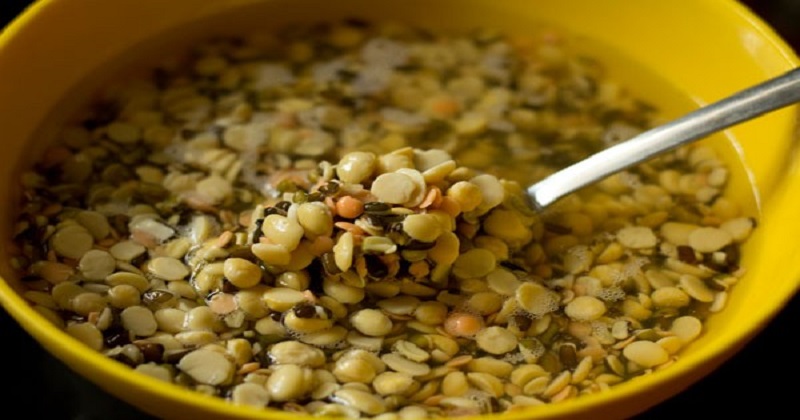
Just a few people soak their lentils before cooking them. For legumes such as rajma and chole to be cooked quickly, they must be soaked overnight. The majority of people do not soak other dals since they are cooked quickly. Interestingly, soaking offers a variety of advantages before cooking and is even necessary.
In a recent Instagram post, Ayurvedic expert Dr. Dixa Bhavsar discussed the benefits of soaking dals before cooking them. She never skips soaking lentils. According to her, legumes should be soaked in order to add ‘prana’ to them. She continued by saying that if you, like her, love beans and cannot live without them, you must soak them every day before cooking them.

https://www.instagram.com/p/CUb99BDDNXe/?utm_source=ig_web_copy_link
Dr. Dixa says certain lentils contain phytic acid, a substance that prevents the body from absorbing minerals and nutrients. People are unaware that lentils and grains should be soaked before eating or cooking them in order to break down phytic acid and other anti-nutrients and make them easier to digest. Among all lentils, moong dal is her favorite because it is the easiest to cook and digest. The body absorbs more minerals when lentils are soaked. An enzyme called phytase is triggered when you soak the dal for a while. Phytase is necessary for the breakdown of phytic acid and the binding of calcium, iron and zinc. It simplifies absorption greatly. By soaking lentils, you also stimulate amylase, a molecule that breaks down complex starch in lentils, making them easier to digest.

According to Dr Dixa, soaking lentils also eliminates gas-producing chemicals. Beans contain complex oligosaccharides, a type of sugar that causes bloating and gas. Sugar levels are dramatically reduced after soaking, which prevents gaseous problems. According to her, lentils cook faster if they have been soaked. In addition, Dr. Dixa discusses the optimal soaking period for various legumes. It takes 8 to 12 hours to soak whole dals like moong, toor, masoor and urad dal. Split dals need to soak for 6 to 8 hours. If you want to cook heavy legumes such as rajma, chana, or chole, let them soak for 12 to 18 hours. The best choice is to soak them overnight.
Read more: Disney‘s Pinocchio on a rebirth in Turkey? Read on …
Additionally, she mentioned that it is ideal to eat beans around noon. She also addressed a question you may have. After we’ve used the lentils, what do we do with the water left behind? ‘It contains tannins and phytic acid, so we do not intend on using it. The best way to use it is to water your plants with it. This will provide nutrients to your plants as well,’ she said.

Post Your Comments